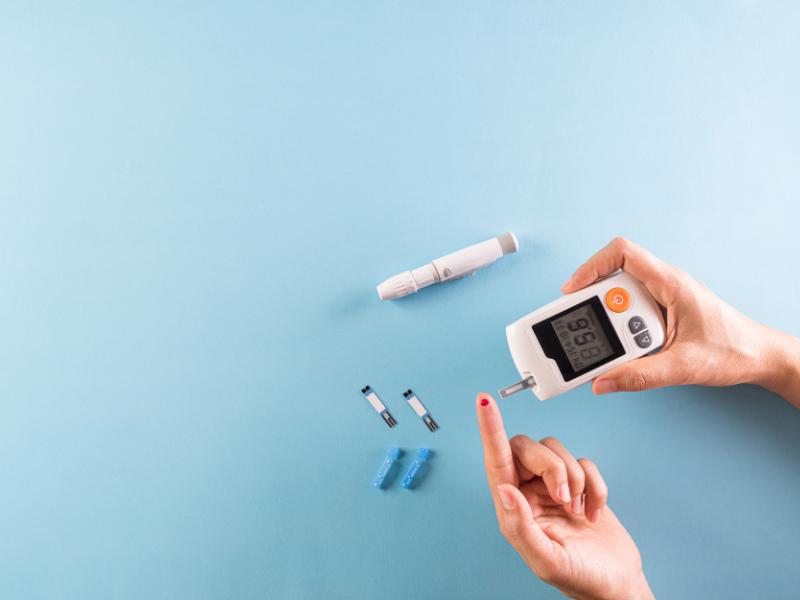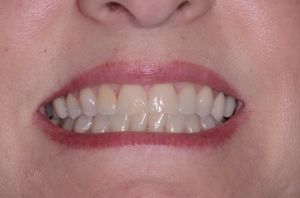November is recognized as Diabetes Month, a time that is dedicated to raising awareness about this common metabolic disease impacting 11.3% of the American population, or an estimated 37.3 million people. During this month, the emphasis is on taking proactive measures to prevent diabetes-related health complications. One such area that often gets overlooked, but plays a significant role in managing diabetes, is dental health. As an experienced dentist in Gilbert, AZ, Dr. Saydyk has worked with many diabetic patients to manage and improve their dental health amidst this very challenging disease.

Understanding Diabetes
Diabetes is a disease characterized by high glucose levels in the blood due to the body’s inability to produce enough insulin, the body’s inefficient use of insulin, or a combination of both. There are two main types of diabetes.
Type 1, which is less common, is a condition in which a person’s body cannot produce insulin. It is considered more of an auto-immune disease because the immune system is triggered to attack the pancreas, eventually rendering it unable to produce insulin.
On the other hand, in Type 2 diabetes, the more prevalent form affecting 85%-90% of diabetic patients, the body does produce insulin but the cells do not respond to it effectively, a condition known as insulin resistance. It is often genetic and linked to poor lifestyle choices and obesity.
The Impact of Diabetes on Dental Health
The connection between oral health and diabetes is well-documented and well-understood in the dental community. Studies have shown that patients who struggle with maintaining their blood sugar levels may find it challenging to keep their gum health in check. This, in turn, may contribute to oral diseases such as gingivitis and periodontitis. Furthermore, inflammation from gum infections can have a negative impact on glycemic control, establishing a cycle that can lead to long-term damage to teeth, gums, and bone, and making blood sugar management even more difficult.

Oral symptoms associated with diabetes may include dry mouth, burning mouth, delayed wound healing, increased susceptibility to infections, candida infections of the mouth, enlargement of the parotid salivary gland, gingivitis, and periodontitis. It is important to note that diabetes and smoking are the leading risk factors for periodontal disease, and they can exacerbate each other’s effects. That’s why we strongly recommend diabetic patients to abstain from smoking and work closely with their dentist to treat any periodontal disease and create a preventative maintenance program for achieving optimal oral health. Evidence has shown that improving periodontal health can indeed have a beneficial effect on glycemic control.
Dental Care Tips for Diabetics
Managing your oral health when living with diabetes involves a combination of regular dental check-ups, meticulous at-home dental care, and maintaining good blood sugar levels. Here are some essential dental care tips for diabetics:
- Regular Dental Appointments: Schedule appointments with your dentist at least twice a year. These regular check-ups allow for early detection and treatment of potential dental problems.
- Good Oral Hygiene: Brush your teeth at least twice a day with a soft-bristle toothbrush and fluoride toothpaste. Floss daily to remove plaque from between your teeth and under the gum line where the toothbrush cannot reach.
- Maintain Blood Sugar Levels: Consistent blood sugar control can help prevent oral health problems associated with diabetes.
- Healthy Diet: A balanced diet is crucial for overall health, including dental health. Limit your intake of sugary foods and drinks which can increase your risk of tooth decay.
- Quit Smoking: As mentioned earlier, smoking can exacerbate the effects of diabetes on oral health. Therefore, if you are a smoker, it is advisable to quit.
- Inform Your Dentist: Make sure your dentist is aware that you have diabetes and provide them with all the necessary details about your health condition and medications.
- Look for Early Signs of Gum Disease: Report any signs of gum disease — including bleeding gums, swollen or tender gums, and persistent bad breath — to your dentist right away.
By following these tips diligently, individuals with diabetes can significantly reduce their risk of developing diabetes-related dental problems and contribute positively to their overall health and well-being.
Trust Dr. Saydyk to Keep Your Smile Healthy
At Stoneridge Dental, we take great pride in being a key part of your healthcare team. Should you have any questions or wish to schedule a consultation, please do not hesitate to call or email our Gilbert dentist office. We are here to help you manage your diabetes effectively while ensuring the health of your smile.



